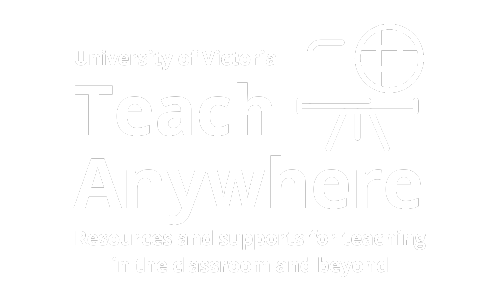Internal Research
Bridging diverse bodies of knowledge and practice in WIL at UVic: Forging a UVic WIL Community of Practice
Rhianna Nagel, Alexandra Haupt, Lilaine Galway and Lisa Mort-Putland (2021)
In this project we explored how WIL, CEL and practicum literature intersect and diverge (considering pedagogy, relationships, practices, systems, tools and resources) and completed an environmental scan of how other institutions integrate the WIL types. Secondly, we highlighted pathways and modes of participation for community partners (across the WIL types), with a goal to increase employers’ awareness of the benefits of hiring students through co-op and work-integrated learning programs and increase employers’ capacity to collaborate with public post-secondary institutions to offer effective co-op and work-integrated learning experiences. Thirdly, we used this process of exploration to further build a WIL Community of Practice at UVic that includes the full spectrum of WIL.
Keywords: Work Integrated Learning, Community of Practice, Community-Engaged Learning, Co-operative Education, Practicum, Service Learning, Field Education
Further information
Knowledge, Democracy and a Sustainable Future: An Institutional Impact Assessment of Community-Engaged Research and Learning
Crystal Tremblay, Rhianna Nagel, Alexandra Haupt, Andrea Giles and Norah McRae (2020)
The United Nations Sustainable Development Goals (SDGs), which include providing inclusive and quality education (G4), promoting health and well-being (G3), achieving gender equality (G5) and climate action (G13) were adopted by the United Nations in 2015 and provide an important framework and pathway towards a sustainable and just future. Increasingly, institutions of higher education are looking to these 17 goals as a way to measure their relevance and impact on society – and some are doing this through community-engaged research and learning. This article shares insights from an institutional impact assessment linked to the UN SDGs from the University of Victoria (UVic), located on Coast Salish and Straits Salish territories of the Lekwungen and W_SÁNEĆ Peoples, on the west coast of Canada. The case study provides an overview of the methodology, highlights some of the various ways impact is being measured and speaks to some of the opportunities both for UVic and other universities wishing to pursue a similar process. The results point to a wide range and diversity of impact to society in almost all the UN goals, also documented at various levels (i.e. individual, community, systems). This work has helped inform guidelines for recognizing community-engaged scholarship in faculty evaluation.
